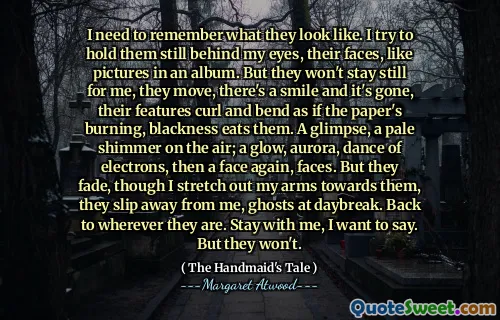My name isn't Offred, I have another name, which nobody uses now because it's forbidden. I tell myself it doesn't matter, your name is like your telephone number, useful only to others; but what I tell myself is wrong, it does matter. I keep the knowledge of this name like something hidden, some treasure I'll come back to dig up, one day. I think of this name as buried. This name has an aura around it, like an amulet, some charm that's survived from an unimaginably distant past. I lie in my single bed at night, with my eyes closed, and the name floats there behind my eyes, not quite within reach, shining in the dark.
In "The Handmaid's Tale," the character reflects on her lost identity, represented by her name, which has become forbidden in the dystopian society she inhabits. Although she tries to convince herself that a name is merely a tool for others, she recognizes the significance of her true name. It symbolizes her past and individuality, which have been suppressed.
This name is described as a treasure that she keeps hidden away, something precious that she longs to reclaim. The notion of it being akin to an amulet highlights its intrinsic value, reminding her of her former self. As she lies awake at night, the name symbolizes hope and connection to her lost identity, floating just out of reach yet illuminating her dark reality.






